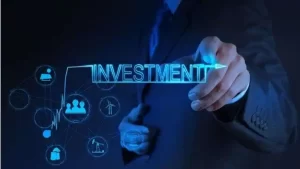
The Best Ways to Pay Off Debt Quickly
If you want to pay off debt faster, there are some tried-and-true strategies that can assist you.
The initial step to taking control of your finances is to focus on one money goal at a time. This is especially crucial if you’re trying to pay off debt while also saving for retirement or other long-term objectives.
1. Start With Your Highest-Interest Credit Card
Credit card debt has been on the rise, as it was before the COVID-19 pandemic; debt increased by 31% between Q2 2015 and Q2 2019.
One of the fastest ways to pay off debt is by starting to tackle your highest-interest bills first. There are various strategies for doing this:
The debt snowball strategy is a popular debt management option that involves paying off your smaller balances first, serving as motivation to tackle bigger ones.
Another option is the debt avalanche strategy, which requires you to organize your credit cards according to interest rate and apply any extra money toward those with the highest rates.
This debt repayment strategy has been long-tested and effective for people with multiple credit cards with various interest rates. No matter which strategy you select, make sure to pay your minimum monthly payments on each card regardless of which one works best for you.
2. Create a Budget
One of the best ways to pay off debt quickly is creating a budget. A budget will help you pay bills on time, build an emergency fund and save for major purchases such as cars or homes.
Before you can create a budget, you must know how much money you make and spend each month. This information can be obtained from recent pay stubs, bank statements and credit card statements.
Once all expenses have been taken care of, classify them as either fixed or variable costs. Fixed expenses refer to things you cannot avoid such as rent, utilities, transportation, insurance and food – these cannot be avoided.
Variable costs such as gym memberships or dining out costs can be more flexible. It is also essential to include all debt payments like mortgages, auto loans and credit cards in your calculations.
Crafting a budget that works for you requires tracking expenditures and having an organized plan. Studies show that having a set budget makes it 42% more likely that you’ll reach your financial objectives.
3. Pay More Than the Minimum
Paying more than the minimum on your credit card will save you money in interest costs, lower your utilization rate and help you pay off debt faster. Furthermore, this will improve your credit score and keep you current with lenders.
One way to tackle this is by starting with your lowest balance first and paying only the minimum on all other cards. Once that account is paid off, apply all extra monthly payments toward the next lowest balance until all debt has been completely eliminated.
Though this strategy may appear intimidating at first glance, it is simpler than you might think and can be highly motivating. If you’re having difficulty starting, consulting with a financial coach or professional may be beneficial to get some guidance and tips.
No matter which debt-payoff strategy you opt for, the most crucial thing is finding a way to increase your income. Whether that means selling unwanted items or earning an extra dollar with a side hustle, having more take-home pay will make paying off debt much simpler and less stressful.
4. Make Extra Payments
Paying off debt faster is the best way to expedite the process. Unscheduled payments reduce interest costs and shorten the overall term of your loan.
Some lenders may apply the money you make toward your interest rate, while others will focus the extra payments directly on your principal. This is by far the more beneficial use of those extra payments – be sure to understand how your bank applies them to your loan.
You could also prioritize using any extra funds on the biggest debt first, which could include college tuition, vacations or even a second home. This strategy may provide an immediate victory.


